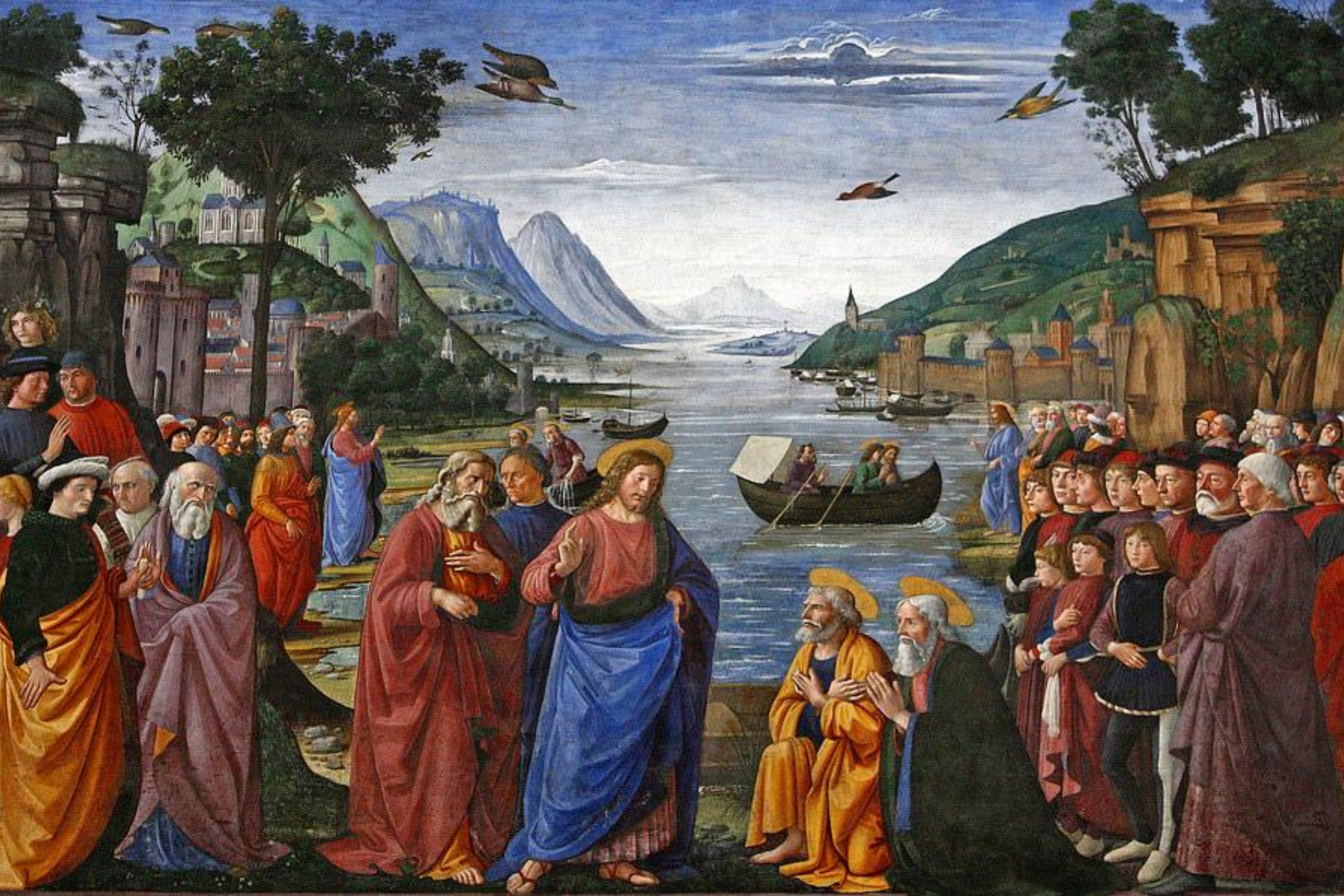To help you get more out of the Bible when you read it, below are two reflections extracted from the book A Year With the Bible: 365 Daily Reflections on the calling of the disciples.
Matthew 4:18-25; Mark 1:16-20; Luke 5:1-11; John 1:35-51
The Call of the First Disciples
The accounts in the four gospels are so different that it is impossible to harmonise them historically. It is best to regard each of them as conveying a different lesson about discipleship. Matthew’s account follows Mark’s closely. Both of them have a double account, the call of the first two brothers, fishermen, with the charge that they are to become fishers not of fish but of people, followed by the call of another couple of brothers. In both cases the stress is on the immediacy of the response: they immediately drop everything and follow Jesus. Or is the stress on the magnetic power of this unknown stranger who walks past them on the shore of the Lake of Galilee? The shape of the story is perhaps borrowed from the call of Elisha by Elijah in 1 Kings 19:19-21; there again the stress is on the absolute priority of the call.
Luke’s account, also at the shore of the Lake, has a different shape and timing. Much the same story appears in John 21, which also has the prelude of an unsuccessful night’s fishing. There is the same emphasis on the obedience of the disciples, but it is significant that Luke delays the event until they have had the experience of the wonders of Jesus: he has already started proclaiming the Good News when he calls them to join him. One factor in this evangelist of repentance is that Jesus makes the first move, but you cannot be his disciple unless you first confess that you are a sinner – just like Zacchaeus at Jericho and the ‘good thief ’ on Calvary.
John’s account is the most different, in location too, for the disciples called are followers of John in the Jordan Valley where John was baptising. Here the stress, as the disciples gradually assemble, is that they are gradually getting to know Jesus. For John this is the first prerequisite of discipleship.
Question: In each of the gospels the burden of the call is that the disciples give themselves wholly to Jesus. Can I manage that?
Matthew 10
The Mission Discourse
The second and fourth of Matthew’s Discourses concern the community of followers of Jesus, the second about their external mission, the fourth about their own internal interrelationships. But the first essential for this group of twelve, representing the twelve tribes of Jesus’s New Israel, is that they should be with him. He calls his disciples to be with him, and it is only secondary that they go out to proclaim the Kingdom. This is a priority which applies to apostles of Jesus in every age: the disciple must first be with Jesus and learn from him, be transformed by him, before going out to spread his Word. So in the call of the first disciples in John 1:39 they ‘saw where he was staying and stayed with him that day’ before spreading the news to others.
At this first stage the disciples are to focus on the lost sheep of the House of Israel. Only later will they be charged with a mission to all peoples, but the principles are the same, as is clear from the warning of persecution before governors and kings and the assurance of strength there given to them by the Spirit of the Father; they are truly like sheep among wolves. There is a fierce urgency about the mission, for ‘the Kingdom of Heaven is close at hand’. They take with them no baggage or spares which might delay their progress. Certainly no question of money! In Mark’s account they are allowed a staff to speed them on their way. There is also an absolutism: they are to seek out the house of someone suitable, but then rely on the response of the house or town to the peace which is offered – and no second chance: if they receive no welcome they shake the dust from their feet.
Question: Do we come close to Jesus by doing his work, or do his work in order to come close to him?
 This blog is extracted from A Year With the Bible: 365 Daily Reflections. Packed with 365 daily commentaries in Scripture, A Year with the Bible will take you on a journey from Genesis to Revelation that will deepen your comprehension of the Word of God.
This blog is extracted from A Year With the Bible: 365 Daily Reflections. Packed with 365 daily commentaries in Scripture, A Year with the Bible will take you on a journey from Genesis to Revelation that will deepen your comprehension of the Word of God.
Click here to order your copy of A Year With the Bible: 365 Daily Reflections.





